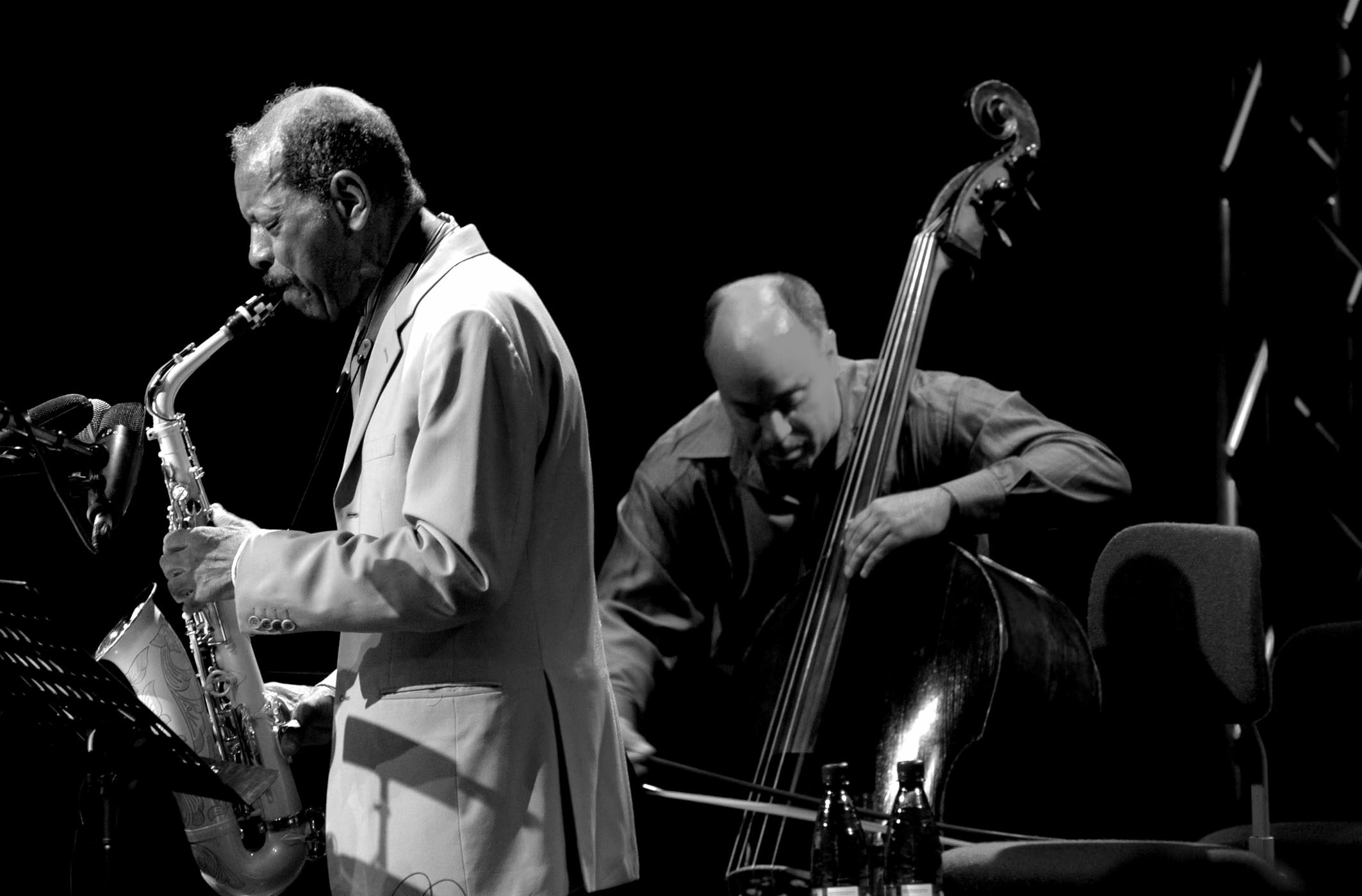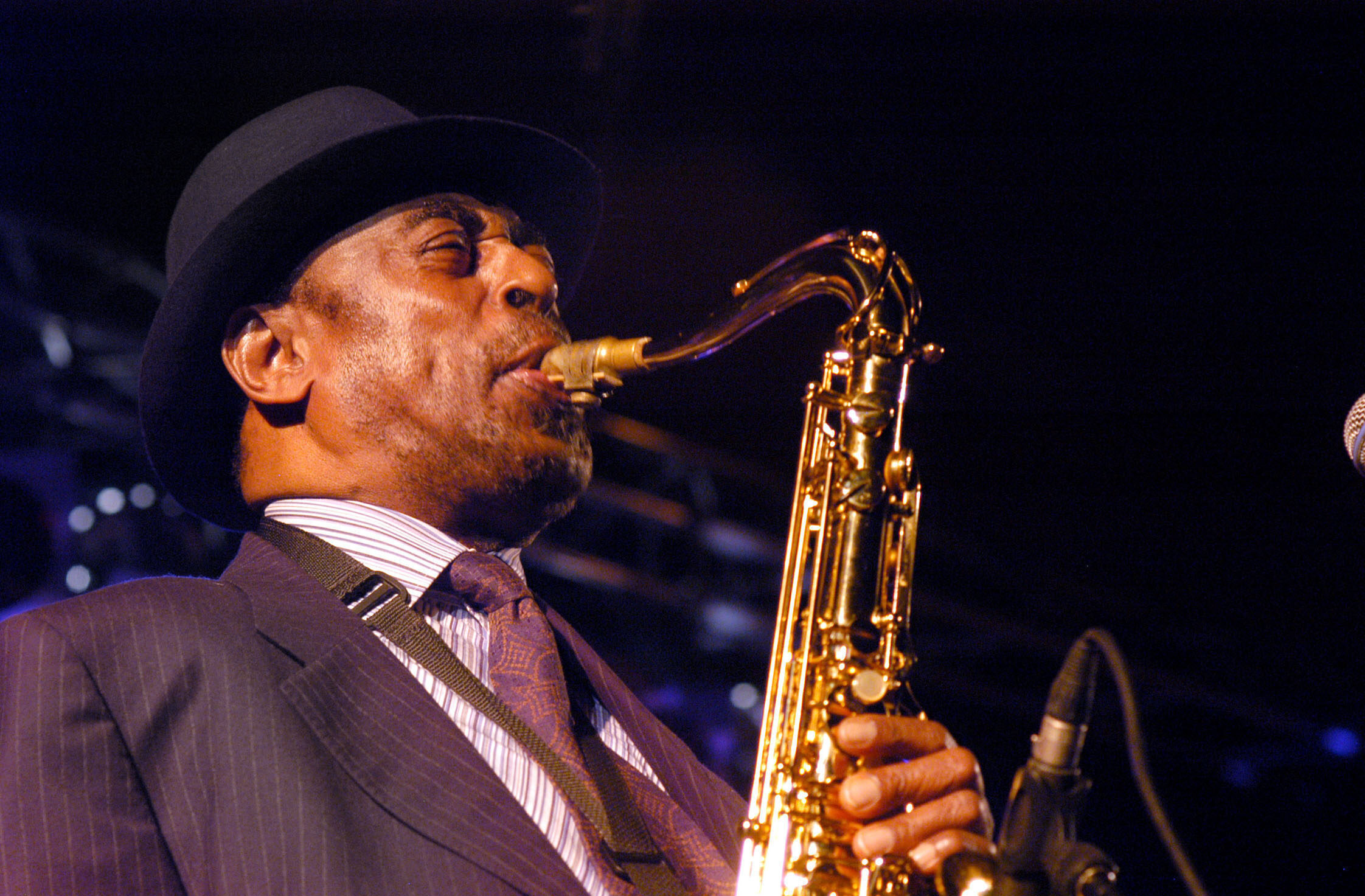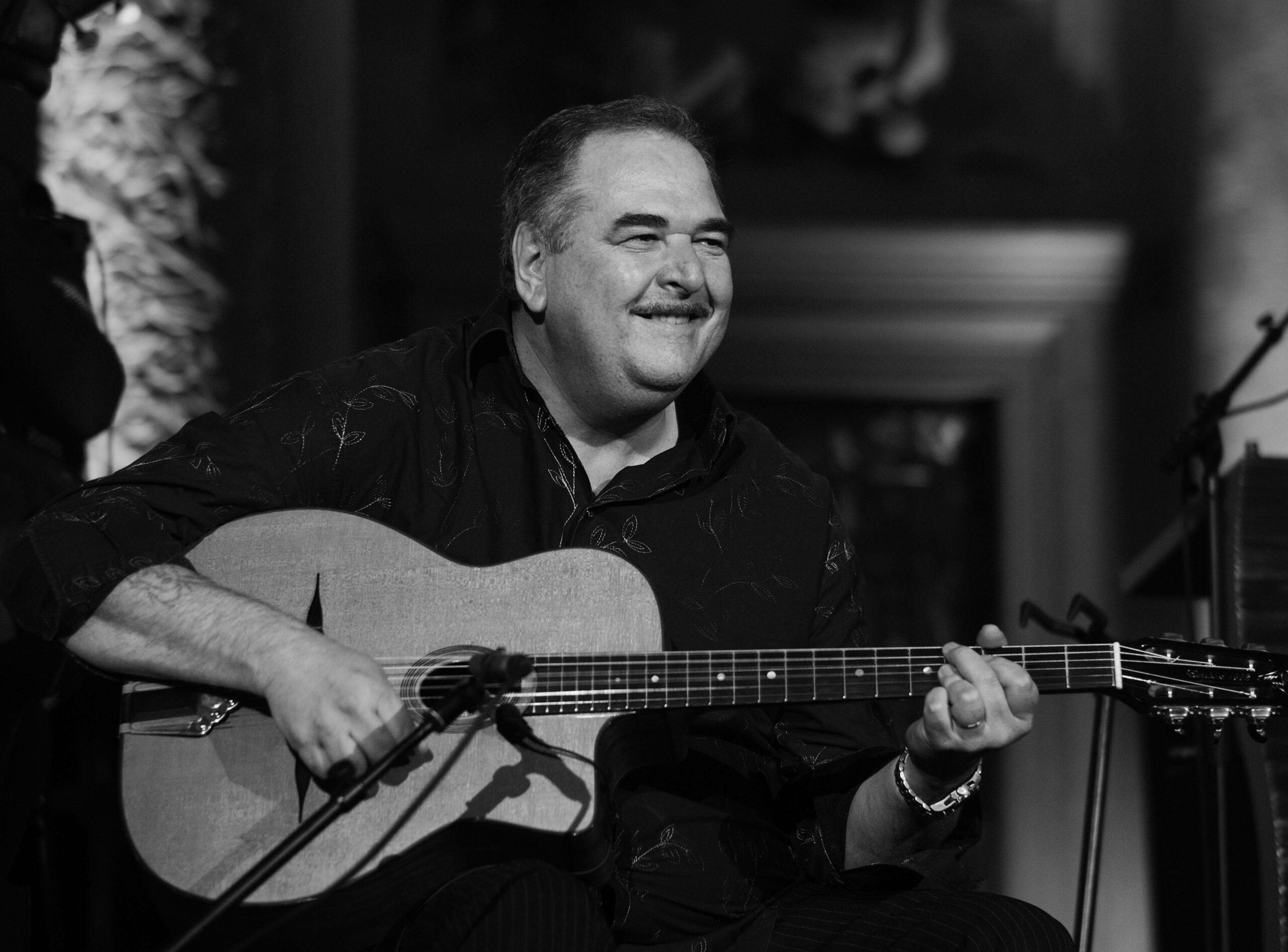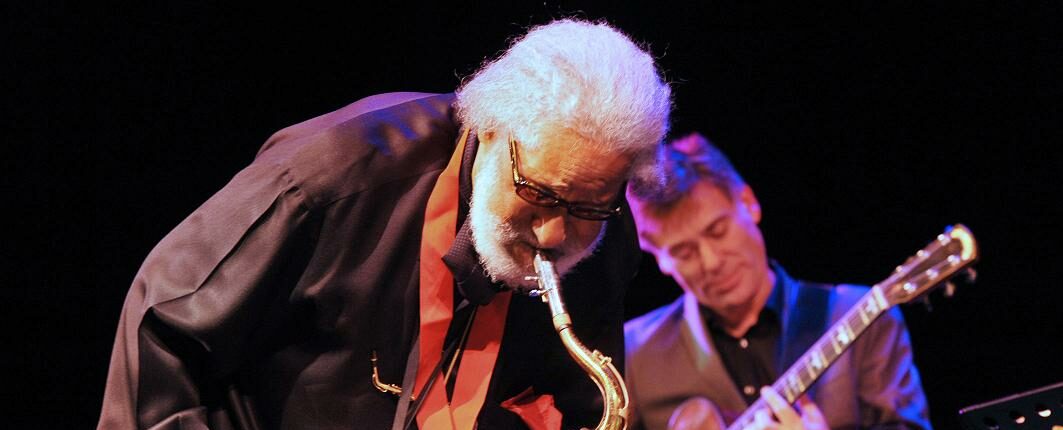Alexander von Schlippenbach, a student of the composer Bernd Alois Zimmermann, has transferred free playing to the big band format in a hitherto undreamed-of way with his Globe Unity Orchestra. The permanent development of his sound language into an amalgam of unconventionally generated own musical themes, traditional quotations and, above all, free improvisations, whose interaction and merging is often structured only by the sound pattern of certain instrument combinations, is a merit of jazz-historical proportions. In 2006, on the occasion of the ensemble's 40th anniversary, there was a concert at Enjoy Jazz, on the fringes of which the following conversation took place.
Let's start by talking about Globe Unity and its history spanning four decades. Looking back, what were the most significant phases in the ensemble's development?
Alexander von Schlippenbach: In the early phase, i.e. from 1966 to 1970, when we actually only played pieces of mine, there was, for example, quite an intensive bond with Donaueschingen. there was, for example, a rather intensive connection to Donaueschingen. After that, we took our development even more into our own hands. For example, we worked closely with our colleagues from Wuppertal, who at that time began to set up concert series themselves and to acquire funds for them. This was important because it meant that the means of production were in our hands and we could produce records ourselves without having to wait for an offer from a record company. This was a very decisive step for us, this newly won independence from radio and the still very American-oriented music and media business. music and media business. This phase lasted about ten years. It ended with the Peter Kowald, who then moved more in the direction of so-called world music. music. During this time we also made the three records for ECM, which of course made us even better known.
The Goethe-Institut probably also played an important role in terms of awareness.
A.v.S: Oh yes. That became very significant for us from the mid-1970s on. The director of the Goethe-Institut in Munich at the time, Drews, had a great interest in the band and sent us literally halfway around the world over a period of ten years. There was, for example, a tour of Asia lasting several weeks, which under normal circumstances would have been unthinkable. Of course, something like that gives you a certain popularity.
In your compositional work for Globe Unity, you worked very much with the soloists.
A.v.S: That is true. But at the same time you must not forget: We have always chosen our musicians always selected our musicians according to their specific "usefulness" for our music or according to correspondingly profound recommendations. Globe Unity has always been an ensemble of personalities. It would be easy to think that the musicians were selected on the basis of conceptual considerations, but that is not true. The concept was anyway that we didn't want to improvise in the conventional way, that is, for example, over the harmony sequences.
How do you actually work out your ideas?
A.v.S.: Little has changed over the years. In part, conventional notation is used, in part instructions are given, which have more of a semantic character, whereby certain signs with certain signs suggesting certain movements. Basically we really use everything that allows us to notate musical thoughts nowadays. Perhaps not in the strict serial way that is common in purely composed music, since in our music, since improvisation is the essence of our music. But that can also be controlled or organized.
Your last solo piano recording was around 30 years ago. Is the new recording "Twelve Tone Tales" something like a balance sheet for you personally?
A.v.S.: I have always given solo concerts, but I have not made any recordings. that's true. Apart from that, of course, I'm at an age when you can take stock a bit. take stock a bit. On the other hand, I simply didn't have the time for recordings. I I was constantly working on different projects. That began even before Globe Unity with the Manfred Schoof Quintet. Later, I added my own projects: Globe Unity in 1966, the trio with Evan Parker and Paul Lovens from 1970, which also still exists, then, for about 15 years, the duet with my wife Aki Takase, and of course Monk's Casino, which was very successful. That made the solo playing perhaps a little too short.
On "Twelve Tone Tales" a peculiar paradox becomes apparent: the more logically and mathematically the pieces, which, as the title suggests, are oriented towards twelve-tone music, develop, the greater the creative freedom becomes on the other hand.
A.v.S: Yes, that is an interesting observation. It's often the case that the things that you think at first things that you think at first are fixing you, are in fact freeing you. Because they represent a mental Because they represent a mental starting point from which one can go on and from which one can bring forth something new, as if from a basic cell. Whereby I have already taken the liberty from the outset to withdraw from the purely mathematical at times. Serial music has perhaps exaggerated this aspect somewhat, in that the compositions often spring from a purely mathematical calculation, whereby all parameters - pitch, interval, duration, dynamics - are precisely calculated and derived from certain numerical ratios of the basic series. This is not how I worked. The reference to twelve-tone music, however, was necessary in order to be able to place a new sound in space without conventional themes by means of a clearly defined source material. That was the endeavor.
This has given rise to a number of jazz-related themes.
A.v.S: Yes. As far as the interval sequences are concerned, such ideas, which are suitable for jazz, can actually also be constructed from rows. Of course, a certain rhythmic impetus must be added, which is unique to jazz. Overall, however, this results in precisely the new impulses that were important to me in the recording. Of course, such works also influence the language on the piano. They almost inevitably expand it. Especially from a technical point of view. For example, I found six-note chord combinations for both hands that I got better and better with over time. In the meantime, they have become part of my stored material, which I no longer need to think about, but which is available at any time in the game, ready to be called up.
Without such an intermediate memory of the hand, at least according to neurobiology, professional piano playing at the highest level would be inconceivable.
A.v.S: Yes. I think that's what you call a good technique. I even heard the other day that the fine motor work of the hands also has a positive influence on health. health.
Twelve-tone music is generally considered to be particularly abstract music, which is a paradox in itself, since music is an abstract art in itself. Seen in this light, is what you play on your new solo CD a kind of meta-abstraction?
A.v.S: As you say: music is always abstract. Beyond that, I think: when you work with new means, you almost inevitably get to a meta-level. In this respect, you are probably right. But I wouldn't overestimate this topic. Especially since in music it's really always about the same thing: getting a musical thought across to an audience and, if necessary, to fellow musicians in a tangible form, regardless of technique, notation or style.
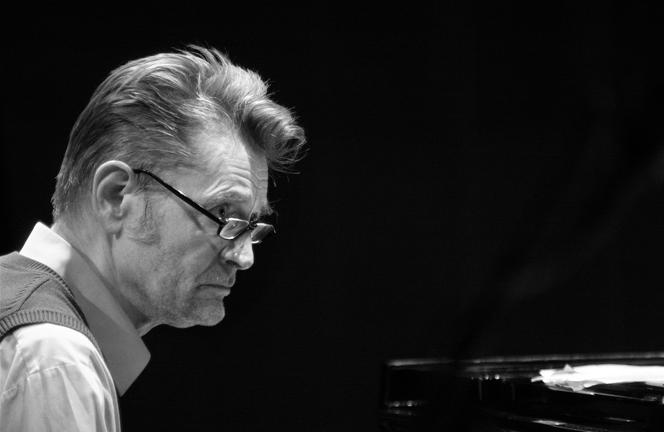
Date: September 11, 2023


